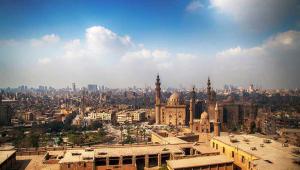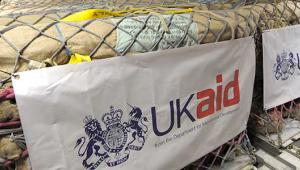Concluding a three-day visit to the country, Sri Mulyani Indrawati said it was important for the north African country to stay the course on reforms and build institutional capacity to restore private sector confidence and gain the people’s trust.
‘Unleashing the potential of the private sector can create the jobs Egyptians need to build better lives for themselves,’ she said.
Both the Egyptian people and the private sector want a climate that is open, encourages competition and levels the playing field, she said.
For this to happen, the country would need to foster good governance and strengthen its checks and balances.
Sri Mulyani Indrawati, who is also the bank’s chief operating officer and former finance minister of Indonesia, said ‘transparent and accountable public institutions and the rule of law are critical for promoting shared prosperity and reducing poverty’.
Egypt’s economy is showing signs of recovery after four years of subdued growth. But Sri Mulyani Indrawati noted that the government was facing the dual challenge of having to look after an economic recovery while addressing long standing structural issues.
These include high unemployment rates, particularly among women and young people, excessive government borrowing needs and unsustainable debt ratios, acute energy needs, and deteriorating infrastructure.
‘Egypt faces many challenges as a result of the tumultuous changes of the last four years but transitions can pave the way for socially inclusive and equitable economic reforms,’ Sri Mulyani Indrawati said.
‘For the next five years, we have agreed with the government of Egypt on focusing on creating jobs through the private sector especially for young people, and improving governance to achieve social and economic progress.’
Meanwhile, reports last week suggested that Egypt wants to build a new capital in the desert in five years, emulating the success encountered by Dubai’s urban regeneration.
The plan to build a new city east of Cairo has already attracted $12bn in aid and investment from Kuwait, Saudi Arabia and the United Arab Emirates.
But critics have argued that Egypt first needs to address the problems of infrastructure, the health system, housing and drinking water.








